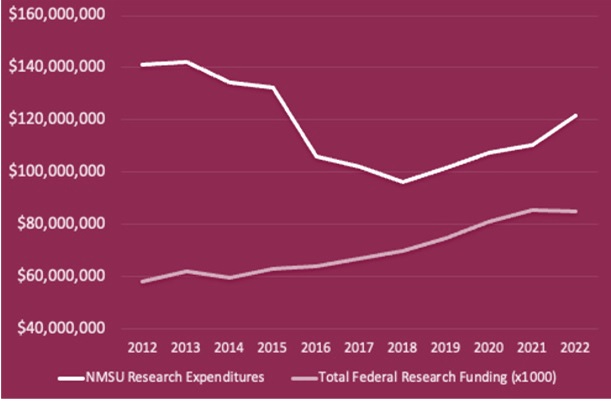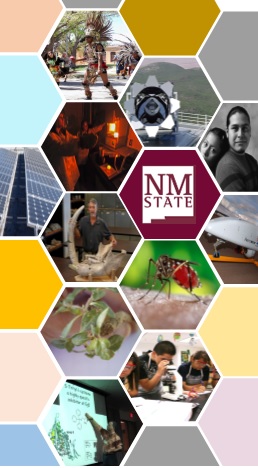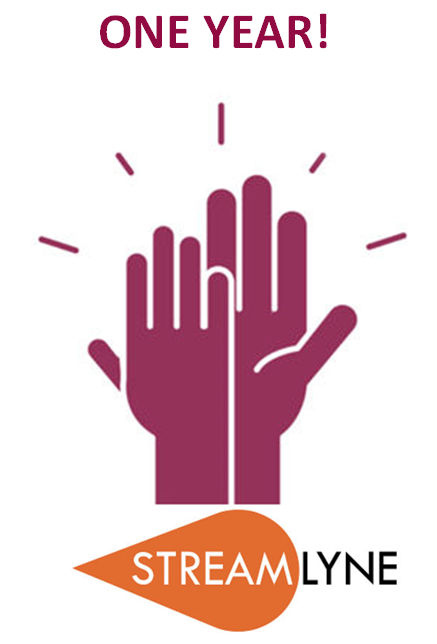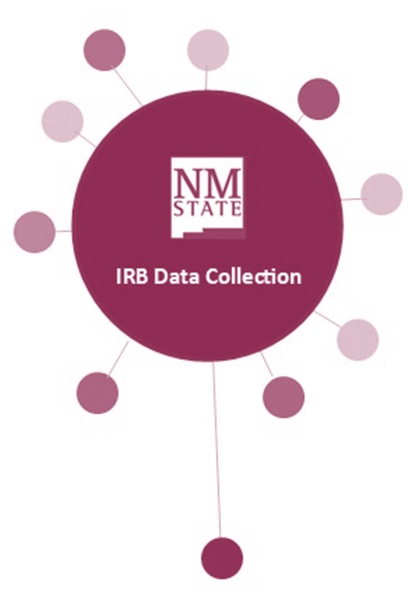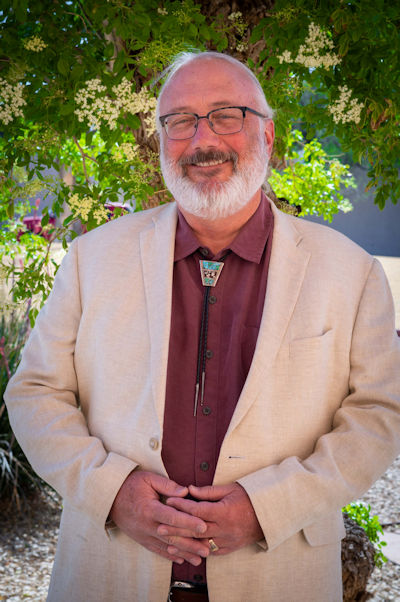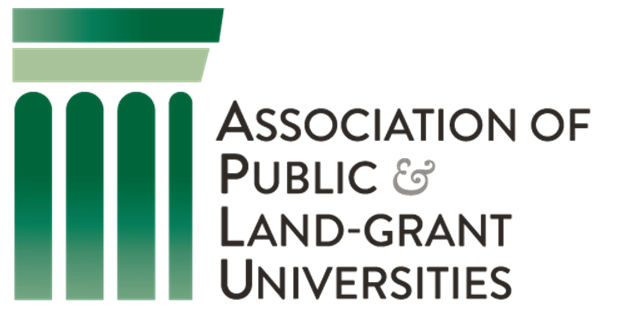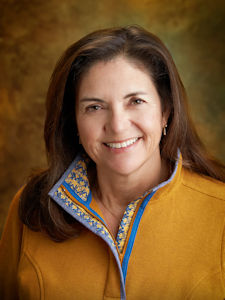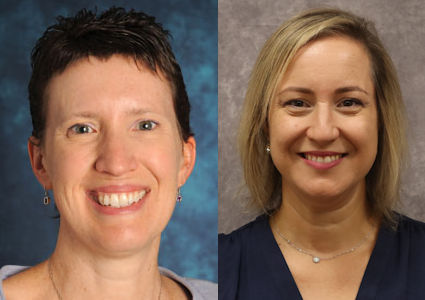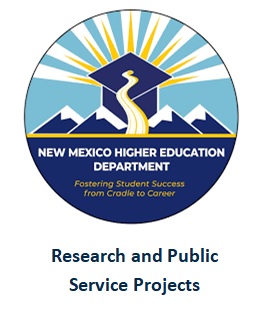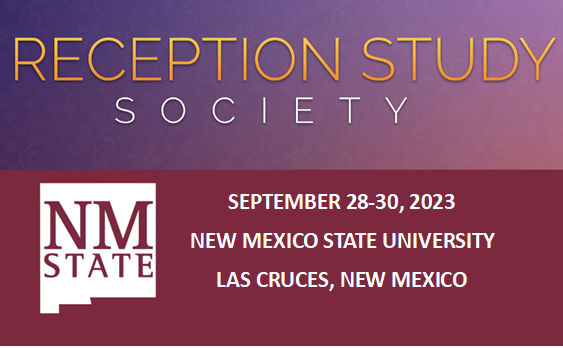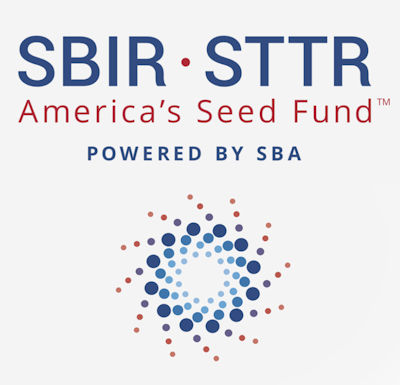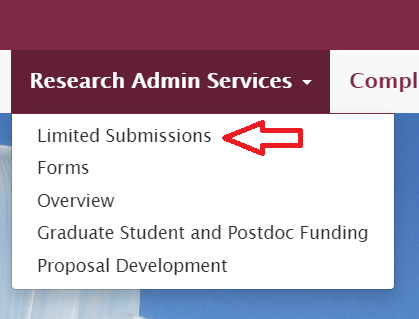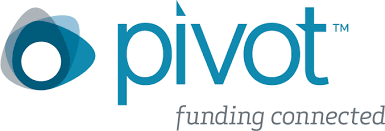 |
|||
Reflecting on the Past Decade of Research ExpendituresBy Dr. Luis Cifuentes, Vice President for Research, Creativity, and Strategic Initiatives (RCSI)“Inflection points come in all forms: positive, negative, easy, hard, obvious, and subtle. The way you respond—whether you grab hold of an inflection point and leverage it for all it’s worth or just let it carry you along—is as important as the event itself.” Eric C. Sinoway
Between 2012 and 2018, a period of regular growth in federal funding for research, NMSU research expenditures dropped by $40 million, almost 30 percent. In 2015, the Physical Science Laboratory (PSL) no longer led the National Aeronautics and Space Administration’s National Balloon Operations Contract, a significant reason for this expenditure decline. Other contributing factors included loss of PSL funding in other areas, lower State investment in higher education and consequent reductions in faculty and staff, ending of American Reinvestment and Recovery Act funding, and elimination of Federal initiatives. In an interview for the Research, Creativity and Strategic Initiative (RCSI) website, I was asked what my top priorities are. I answered that the fundamental priority of any VPR is a healthy research and creativity enterprise. By healthy, I meant simply that the faculty, staff, and students, which rely on us, are getting the services and support they need to succeed and if asked to do so, to grow. NMSU is a remarkable institution with potential for growth and greater impact in research and creative activity. When I arrived, however, years of diminishing grant and contract awards had taken its toll on the health of NMSU’s research and creativity enterprise. An increasing volume of research suggests having a positive outlook can benefit physical health. (NIH News in Health) I believe Goal 2, Elevate Research and Creativity, and the LEADS 2025 aspiration of becoming a Carnegie R1 ranked institution is positively impacting the health of our research and creativity enterprise. This is a work in progress, but I hope that when we get close to completion, faculty, staff, and students will tell you that RCSI is supportive and cares about their success. We aren't there yet, but here is what we are doing to get there.
NMSU’s current research expenditures exceed some R1 universities. The growth in research expenditures, and other essential elements of the Carnegie classification formula like increased post-doctoral fellows and expanded doctoral programs, observed since 2018 tells me the health of our research and creativity enterprise is improving and the Carnegie R1 ranking goal is within reach. |
|
||
NMSU Streamlyne IRB Marks One Year Anniversary
By Ms. Michelle Gavin, Research Integrity Coordinator, RICThe NMSU Office of Research Integrity and Compliance (RIC) and the NMSU Institutional Review Board (IRB) wants to thank our NMSU faculty, staff, and students as we close the Spring 2023 semester and we complete our first year transitioning from Maestro to using the Streamlyne eRA (electronic Research Administration) system. This year we have experienced many changes and challenges, but we have also made substantial progress in the world of NMSU IRB. We welcomed a new IRB Chair, Dr. Joe Tomaka, and Vice Chair, Dr. Julie Steinkopf to provide guidance and leadership to NMSU's IRB committee and researchers. The research community is now solely using Streamlyne to submit their IRB protocols to the NMSU IRB. Starting May 16, 2023, we will no longer accept Maestro transfer protocols! This corresponds to the year anniversary of us transitioning to Streamlyne. Looking to the coming year, we will begin the summer break by saying a final “goodbye” to Maestro. Maestro served our IRB community well for the last 10 years. As we continue to use Streamlyne, we ask for your patience as we continue to make improvements to the NMSU IRB Streamlyne process. It is our goal to continue to provide the research community with quality support in using Streamlyne and understanding the IRB process. We continue to provide updates and improvements to our website, videos, training, and documentation. Streamlyne Access & Support
We also urge researchers to review the state of your protocols in Streamlyne to make sure they are where you expect them to be. If you are unsure or need help with the IRB process or using Streamlyne, please contact the RIC staff at 575-646-7177 or email ric_admin@nmsu.edu for assistance. We wish you all a safe and enjoyable summer break! |
|
||
Role of Institutional Review Board Data Collection EffortsBy Ms. Michelle Gavin, Research Integrity Coordinator, RICRecently the NMSU IRB Chair issued a letter to the NMSU research community on behalf of the NMSU IRB to formally communicate the role of NMSU’s IRB in data collection efforts. A copy of that letter appears below as well as a noted addendum. For additional guidance on this subject, please see "Guidelines Regarding Institutional Data Collection and Consultation with the IRB," document dated 4/26/2023. If you have questions or need assistance in submitting an IRB or determination of not Human Subject Research (HSR) submission, the IRB and the compliance office staff are here to help. Please call us at (575) 646-7177 or send an email to ric_admin@nmsu.edu.
*As an addendum to the above letter, although federal guidelines (45 CFR 46) describe only three “vulnerable” populations, including pregnant women, children, and prisoners, in practice, the NMSU IRB, through the diversity of its membership and application process, ensures the protection of several other groups. These groups include NMSU staff and students, Native American and indigenous populations, LGBTQ+ populations, economically disadvantaged individuals, and people experiencing homelessness. IRB applications planning to include these groups require investigators to explain why they need to engage them and what special measures—above those already afforded to all research participants—the investigators will take to protect them.
|
|
||
Economic Development
Dr. Ken Van Winkle, Associate Vice Chancellor, Economic Development and External RelationsDid you know that April 26 is designated World Intellectual Property Day (World IP Day)? It was established by the World Intellectual Property Organization (WIPO) in 2000 and was initiated by the Director-General of the National Algerian Institute for Industrial Property (INAPI). The day creates awareness of copyright, trademarks, and patents protecting the original work of creators and innovators. This can include writers, artists, inventors, and brands that help ensure creators have the right to own their work. World IP Day has become increasingly recognized throughout the world. On Thursday April 26, 2023, Dr. Jeffrey B. Arterburn was awarded the New Mexico State University Intellectual Property Award by the Arrowhead Center and the Office of the Vice President for Research, Creativity, and Strategic Initiatives (RCSI). Yes, presented on World IP Day. Celebrating Dr. Arterburn offered a unique opportunity to join with others to promote the importance of IP and those who contribute to innovation that helps shape our world. Arrowhead Center and the RCSI established this award to recognize individuals in the NMSU research community who are high achievers in creating intellectual property and taking IP to the market. Dr. Arterburn’s research program focuses on the development of small molecular probes, imaging agents, anticancer and antiviral drugs. His cancer research interests include projects that involve development of small molecule regulators to control key steps in cancer cell biology, that have potential for development as new selective anticancer drugs and diagnostic agents. Under Dr. Arterburn’s leadership NMSU is in addition, collaborating with the University of Louisville Center for Predictive Medicine, the University of New Mexico, and the United States Army Medical Research Institute of Infectious Diseases to identify broadly cross-reactive antivirals for treatment of alphaviruses, and other highly pathogenic viruses. Jeffrey Arterburn is a faculty member in the Department of Chemistry and Biochemistry, and is a co-owner of nine patents of research tools and therapeutics related to treatments of diseases including cancer. Dr. Arterburn is also an enthusiastic fly fisherman and is dedicated to native Gila trout and Rio Grande Cutthroat trout and watershed conservation. NMSU is fortunate to claim Dr. Arterburn as an innovative leader, researcher, collaborator, ranked among the most proficient researchers in the country. NMSU Economic Development Plan You may find the NMSU Economic Development Plan at: https://www.nmsu.edu/economic-development/plan.html Thank you to the Economic Development Cabinet and the Economic Development Team for developing the plan. The task of implementation will require consistent review, appropriate modification, and outcome measurements. We look forward to university contributions that will:
|
Dr. Jeff Arterburn, NMSU |
||
The APLU CoR Research Leader Fellowship
By Dr. Tanner Schaub, Assistant Vice President for ResearchColleagues, I am excited to let you know that I have been selected to participate in the sixth cohort of the Association of Public and Land Grant Universities (APLU) Council on Research (CoR) Research Leader Fellowship Program . This 12-month program provides tailored opportunities for research leaders to develop knowledge in areas of interest and to experience broad leadership training, peer mentoring, and networking across APLU institutions. Fellows attend the CoR summer meeting, participate in professional training opportunities, arrange short-term visits to other research institutions, and develop content related to challenges within CoR working group areas. As part of the application process, I was asked to name and describe which 2-4 institutions I would like to visit as part of my fellowship. Thinking about what might benefit NMSU most, I responded:
Similarly, the application process requested “Areas of Expertise and Responsibility to be Developed During the Fellowship.” These are the areas that I would like to explore:
With some luck and a bit of travel this year, I hope to gain perspectives that will benefit NMSU and our research enterprise through this unique experience. We are in a time of change and opportunity at NMSU - I am eager to deepen the impact of NMSU research as a primary driver of student opportunity, economic development, and intellectual culture in our region. |
|
||
Recognizing Recipients of Large Awards (April 2023)By Dr. Hamid Mansouri Rad, Senior Proposal Development Specialist, RASCongratulations to Drs. Patricia Sullivan, Michèle Shuster, and Wanda Bulger-Tamez for each leading successful proposal efforts that resulted in awards exceeding one million dollars in the month of April. Dr. Patricia Sullivan, Director of the Office of Strategic Initiatives received $10 million from the Environmental Protection Agency and the Department of Energy for establishing the South-Central Environmental Justice Resource Center. The goal of the Center includes providing outreach and technical assistance to 66 tribal nations across New Mexico, Arkansas, Louisiana, Oklahoma, and Texas to remove barriers to accessing federal resources needed for attaining clean air, water, and energy. As the lead on this effort, NMSU will partner with Texas Manufacturing Extension Program within the University of Texas at Arlington as well as industry and non-profit organizations in the collaborating regions such as LifeCity, Santa Fe Green Chamber, and Beloved Community. For more information please contact Dr. Patricia Sullivan at patsulli@nmsu.edu. |
Dr. Patricia Sullivan, NMSU |
||
|
Professor of Biology, Dr. Michèle Shuster (PI) and Professor of Mathematical Sciences Louiza Fouli (co-PI), have received $3 million competitive award from the National Science Foundation's IUSE HSI program. Titled, NMSU-MAS, Mejorando las Aulas en STEM/Improving STEM Classrooms, this project aims at enhancing the success of NMSU's diverse student population through faculty professional development activities focused on equitable and inclusive teaching practices. Led by Dr. Shuster, this five-year project will increase the number of Hispanic, first-generation and low-income students who complete STEM degrees and will prepare them for successfully entering the workforce or pursuing advanced degrees. Other investigators involved in this effort include Dr. Enrico Pontelli, dean of the College of Arts and Sciences and Provost Alan Shoho who recently replaced former Chancellor Arvizu on this project. For more information about this project contact Dr. Michele Shuster at mshuster@nmsu.edu. |
Drs. Michèle Shuster, and Louiza Fouli, NMSU |
||
|
NMSU's Mathematically Connected Communities (MC2) received $1.1 million from New Mexico Public Education Department for a project whose goal is to provide intensive and customized in-person mathematics tutoring for students in elementary grades 1-5 across the state of New Mexico. The tutoring sessions are game-based interactive activities that provide hands-on learning to develop foundational math concepts in the early grades. Titled, the MC2 Mathematics Out of School Time (MC2-MOST), this tutoring project will recruit 70 elementary teachers from approximately 35 schools across New Mexico and contract the Math Recovery Council for training the recruits in Add+Vantage and Math Recovery (AVMR) assessment and instructional strategies leading to their AVMR certification prior to their tutoring engagement in schools. MC2 staff will provide classroom-based support for the teachers implementing the new math tutoring program. Dr. Bulger-Tamez thanks the MC2 writing team, led by Allison Conway, for bringing this project to NMSU. For more information about this project contact the MC2-MOST Program Manager, Michelle Sterling-Rodriguez, at misterli@nmsu.edu or Dr. Wanda Bulger-Tamez, MC2 director at wguzman@nmsu.edu. |
Dr. Wanda Bulger-Tamez, NMSU |
||
Recognizing Large Proposal Submitters (April 2023)
By Dr. Hamid Mansouri Rad, Senior Proposal Development Specialist, RASCongratulations to Professor of Physics, Dr. Boris Kiefer for submitting a $6 million proposal to the Department of Energy's Office of Science. The overarching mission of this multi-institutional proposal is to build a diverse and inclusive quantum workforce that meets national needs varying from quantum technicians to quantum researchers. To that end, the team will create educational opportunities at NMSU, including an undergraduate QISE/quantum computing minor in Physics at NMSU. Other NMSU co-principal investigators on this project are Drs. John Harding, professor of Mathematical Sciences, and David Mitchell, assistant professor of Electrical and Computer Engineering. External collaborators involved in this proposal are peer scientists at University of New Mexico, University of Central Florida, Oak Ridge National Laboratories, and Sandia National Laboratory. For more information please contact Dr. Kiefer at bkiefer@nmsu.edu. |
Dr. Boris Kiefer, NMSU |
||
Research and Public Service Projects (RPSPs)
Clayton Abbey and Aggie Saltman, Office of Government RelationsEach year, NMSU submits Research and Public Service Projects (RPSPs) proposals to the New Mexico Higher Education Department (HED) for consideration in its annual funding recommendations. This past legislative session, 19 RPSPs were funded to the tune of $12.9 million, representing a $3.4M increase from fiscal year 2023. The interim review process for next year’s round of RPSPs begins now in order to meet HED deadline of September 15, 2023. It will involve presentations to the University System Budget Committee, Regents Financial Strategies, Performance and Budget Committee, and approval by the Board of Regents. Additionally, RPSPs must be reviewed by the State’s Higher Education Department, Department of Finance and Administration, and Legislative Finance Committee, all of whom are increasingly eyeing performance measures and fiscal management. If you are an existing principal investigator (PI) on an active RPSP or are planning to submit a new request, keep the following in mind. First, both the executive and legislative branches hold healthcare, education, social work, climate resiliency, and economic development as major priorities and will continue to favor these areas in terms of increases in funding, expansions, and new requests. Second, the Legislature will increase scrutiny of RPSPs due to the explosive growth in this portion of higher education funding, as well as the perceived lack of accountability. Third, PIs on RPSPs should strive to demonstrate productivity, results, and sound financial management. Fourth, projects that require “seed funding” only and will not require long-term recurring funding from the State---meaning they could either be self-sufficient or conclude their efforts during a set period--- could stand a better chance of receiving support. Please contact Aggie Saltman at aggie@nmsu.edu, or Office of Government Relations office email at gaffairs@nmsu.edu for further information on RPSPs. |
|
||
RCSI Offers Matching Funds for NEH Summer Stipend Program
By Dr. Allison Layfield, Senior Proposal Development Specialist, RASNEH Summer Stipends provide funding for individual humanities scholars $6000 to work full-time on their research for two months during the summer. Tenure-track, non-tenure track, independent scholars and non-teaching staff members are all eligible to apply. To further support the work of scholars over the summer, RCSI is offering an additional $3000 to any NMSU faculty member or staff who receives an award from NEH for the 2024-2025 grant period. To be eligible for the NEH Summer Stipend program, scholars must:
Interested tenure-track faculty must complete a Limited Submission application by May 19, 2023. Reach out to Hamid Mansouri Rad (hamid@nmsu.edu) for further information. Per NEH restrictions, NMSU is limited to nominating two tenure-track scholars for the program; there are no limitations on the number of staff and non-tenure faculty that may apply from NMSU. Proposal writing resources can be found on the Arts and Humanities Funding MS Teams Site. All faculty and staff are welcome to reach out to Allison Layfield (layfield@nmsu.edu) for information about the Summer Stipend program or for assistance in preparing a proposal.
|
|
||
Reception Study Society Conference Call for Papers: Proposals Due May 15
By Dr. Allison Layfield, Senior Proposal Development Specialist, RASNMSU will host this year’s Biannual Reception Study Society Conference from September 28-30, 2023. The Reception Study Society (RSS) is a national academic society that promotes informal and formal exchanges between scholars in several related fields: reader-response criticism and pedagogy, reception history, history of reading and the book, audience and communication studies, media studies, institutional studies, and gender, race, ethnic, sexuality, postcolonial, religious, and other studies. RSS welcome presentations on all aspects of reception, but this year RSS especially encourages papers or panels on the theme: Diverse Audiences, Diverse Receptions. The full call for papers can be found on the Reception Study Society Conference webpage: https://receptionstudy.org/conference Selected conference papers will be solicited for publication in the RSS journal, Reception: Texts, Readers, Audiences, History, published by Penn State University Press. This year one attendee will be awarded the inaugural Janet Staiger Honorary Scholarship, which pays the conference and registration fees for a graduate student presenting on a topic in media studies. |
|
||
Research Partnerships with America's Seed FundBy Ms. Patricia Marquez Knighten, Director of Innovation Commercialization, Office of Intellectual Property, Arrowhead CenterThe Small Business Innovation Research (SBIR) program, often referred to as “America’s Seed Fund,” provides opportunities for small businesses to receive federal dollars to move innovations from idea to market with funding that does not dilute the company’s equity. Twelve federal agencies participate in the program, funding innovations from areas such as health technologies, critical defense and force protection, space exploration, agriculture, energy, and environmental sectors.
|
|
||
Limited Submission Funding OpportunitiesBy Dr. Hamid Mansouri Rad, Senior Proposal Development Specialist, RASResearch Administration Services maintains a list of limited submission funding opportunities for NMSU research community. The list is accessible through a link on the Research website, through the Research Administration tab. NMSU users can also access the list directly on SharePoint. We encourage NMSU researchers to periodically visit the site and if they are interested in any of the opportunities to please inform us by sending email to ras@nmsu.edu. |
|
||
Pivot Funding Opportunity DatabaseBy Dr. Hamid Mansouri Rad, Senior Proposal Development Specialist, RASThis is a reminder that in order to assist NMSU faculty and staff in locating external funding opportunities, the RCSI has purchased a subscription to ProQuest’s Pivot available at https://pivot.proquest.com/session/login. Choose New Mexico State University from the Institution drop down menu. You will be prompted to log in using your NMSU username and password. Follow the process for NMSU's 2-Factor Authentication (2FA). To request a one-on-one or group Pivot training, send email to hamid@nmsu.edu. |
|
||
|
Graduate School |
|||
|
No significant news. For information about NMSU Graduate School visit: https://gradschool.nmsu.edu/. |
|
||
Questions and comments regarding NMSU’s Research Digest should be directed to Hamid Mansouri Rad, Ph.D. at hamid@nmsu.edu, (575) 646-6429. |
|||
